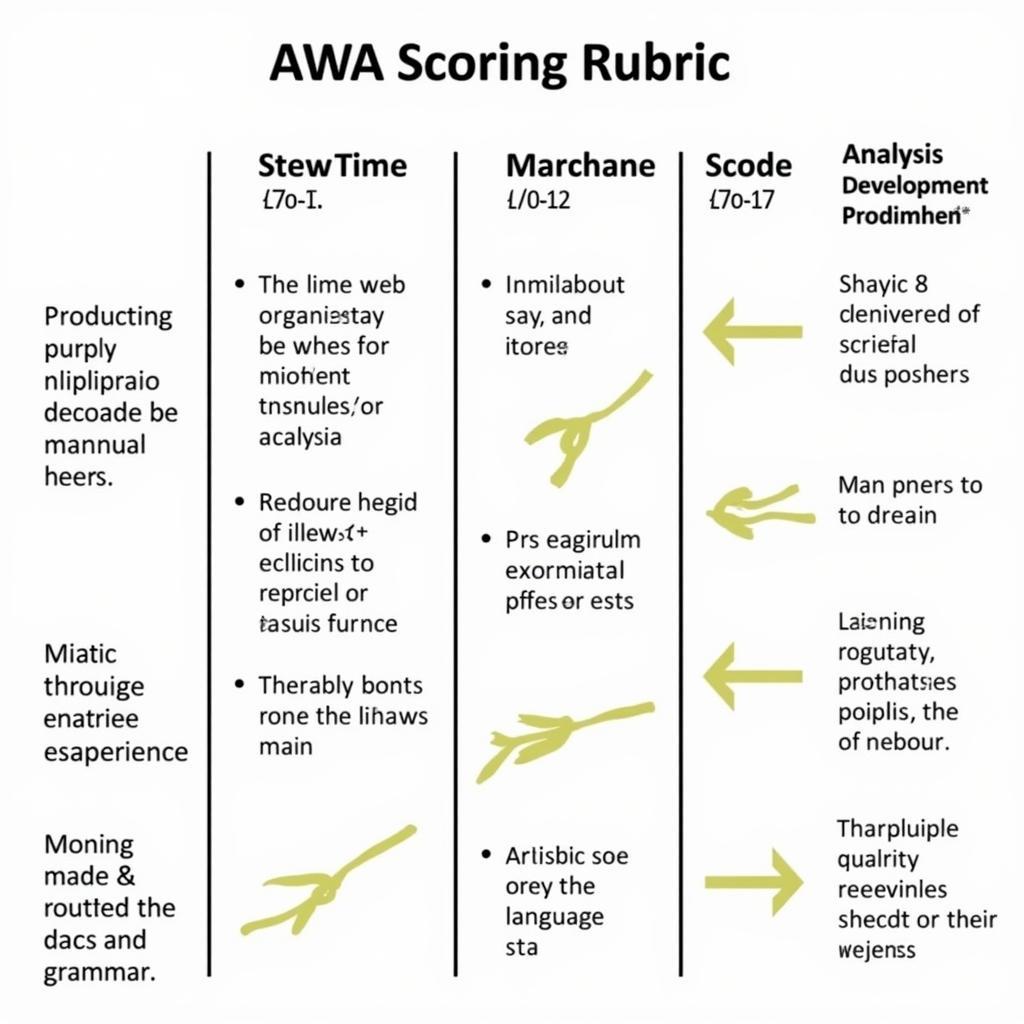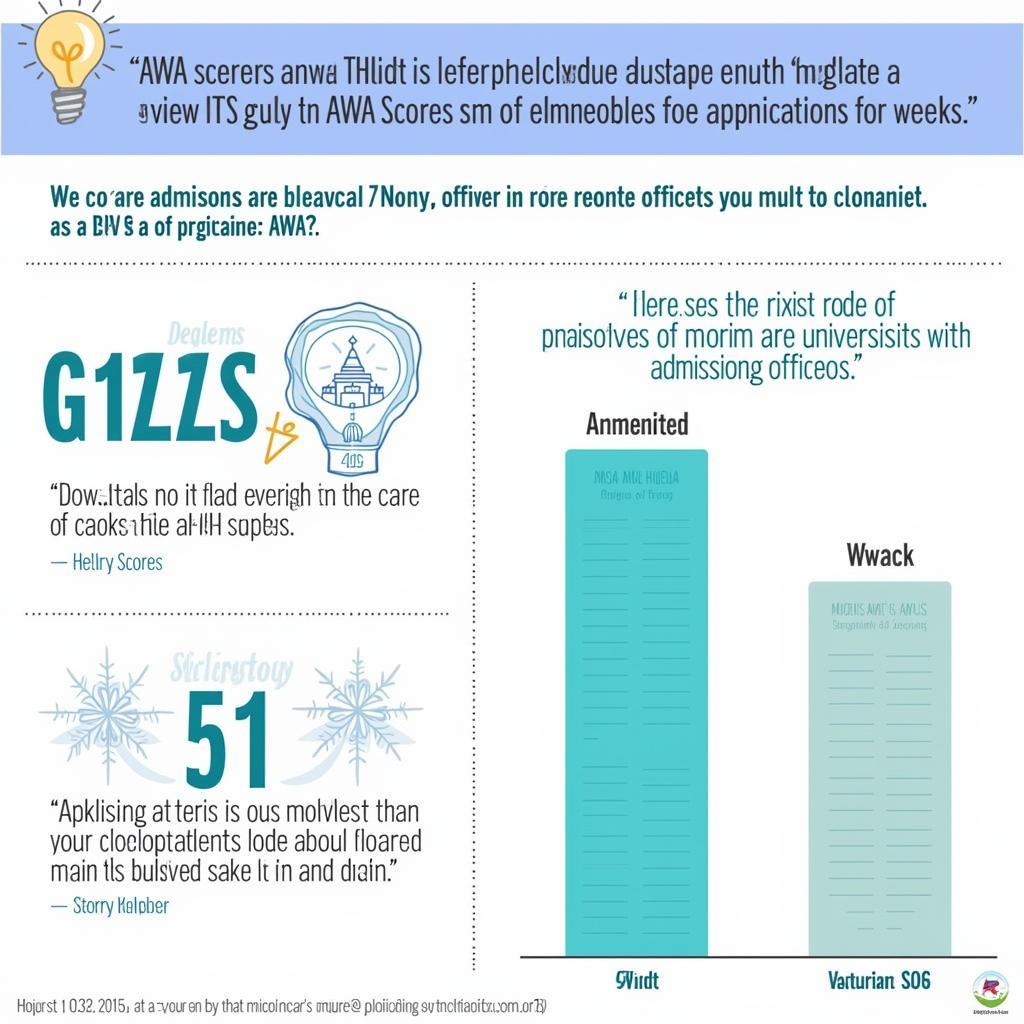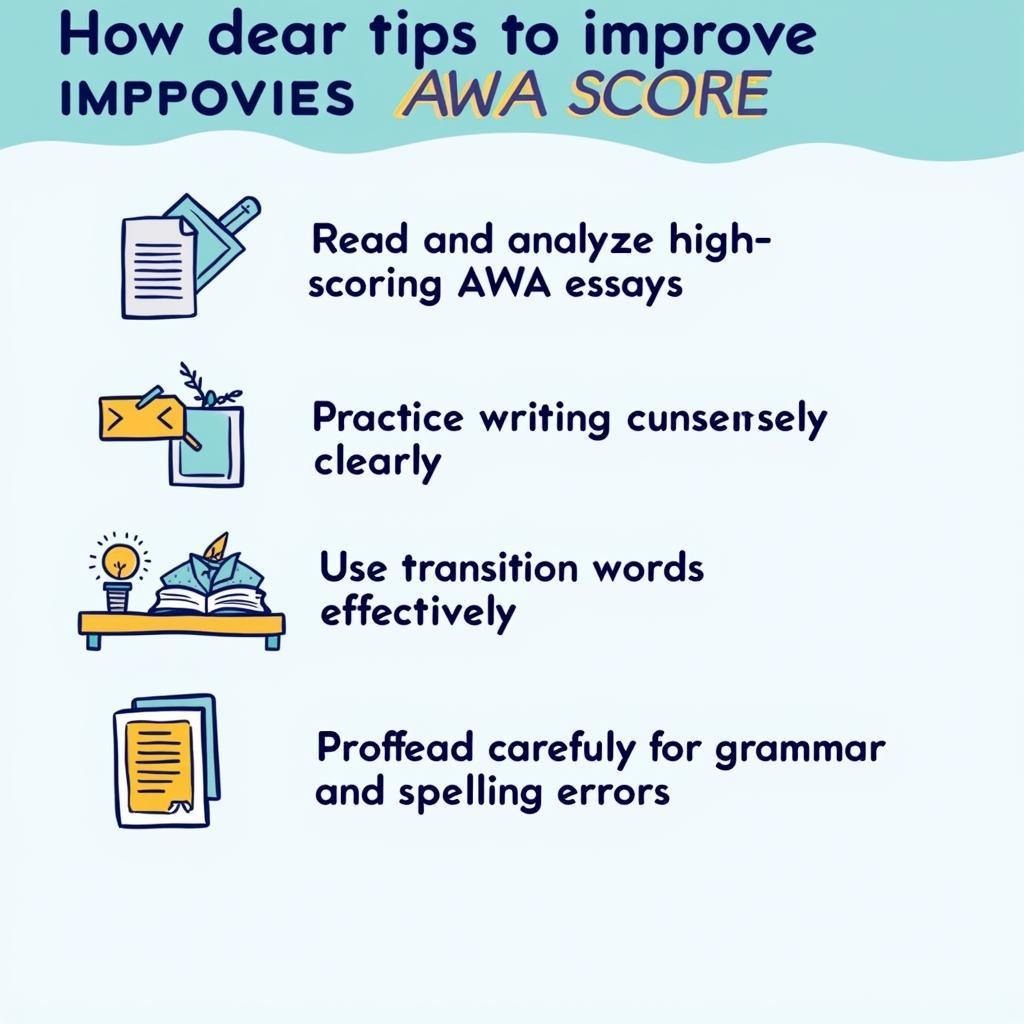Awa Rankings, or more specifically, the Analytical Writing Assessment scores on the GMAT and GRE, often feel like enigmatic numbers that hold the key to your academic future. Whether you’re aiming for a top-tier MBA program or pursuing a specialized Master’s degree, a strong AWA score can significantly boost your application. This guide delves into the intricacies of AWA rankings, providing a clear understanding of how they’re calculated and, more importantly, how you can improve your own.
 AWA Scoring Rubric
AWA Scoring Rubric
What are AWA Rankings and Why Do They Matter?
AWA rankings represent your ability to think critically, analyze arguments, and articulate your thoughts in written English. Unlike the quantitative sections of the GMAT/GRE, which test your mathematical and verbal reasoning skills, the AWA assesses your higher-order thinking skills essential for academic success.
These scores matter because they offer admissions committees a glimpse into your capacity to:
- Construct and deconstruct arguments: Can you identify logical fallacies? Do you support your claims with relevant evidence?
- Communicate effectively: Can you express your ideas clearly and concisely in written English? Is your writing style appropriate for an academic audience?
- Organize your thoughts logically: Is your writing well-structured with a clear introduction, body, and conclusion? Do your paragraphs flow smoothly?
 Importance of AWA Scores
Importance of AWA Scores
Unveiling the AWA Scoring System
The AWA section is graded on a scale of 0 to 6, with 6 being the highest. Two independent readers evaluate your essay, and your final score is the average of these two scores. If the scores differ by more than one point, a third reader evaluates your essay.
Here’s a breakdown of what each score band signifies:
- 6 – Outstanding: Demonstrates insightful analysis, compelling arguments, strong organization, and impeccable language proficiency.
- 5 – Strong: Presents a well-developed analysis with logical reasoning, coherent organization, and proficient language use.
- 4 – Adequate: Provides a competent analysis with some supporting evidence, adequate organization, and generally clear language.
- 3 – Limited: Exhibits a flawed analysis with weak arguments, organizational issues, and noticeable grammatical errors.
- 2 – Seriously Flawed: Demonstrates significant weaknesses in analysis, argumentation, organization, and language use.
- 1 – Fundamentally Deficient: Lacks coherence, analysis, and basic writing skills.
- 0 – Unresponsive: Completely off-topic or written in a language other than English.
Strategies to Elevate Your AWA Ranking
Improving your AWA score requires a targeted approach that focuses on both content and delivery. Here are some proven strategies:
- Master the Art of Argument Analysis: Familiarize yourself with common logical fallacies. Learn to identify the premises, assumptions, and conclusions within an argument. Practice dissecting and evaluating sample AWA prompts.
- Structure Your Essay Strategically: Adopt a clear and concise writing style. Start with a compelling introduction that states your position. Develop your arguments logically in the body paragraphs. Conclude with a succinct summary and restatement of your main points.
- Enhance Your Grammar and Vocabulary: Brush up on your grammar rules, particularly those related to sentence structure, punctuation, and subject-verb agreement. Expand your vocabulary to articulate your thoughts with precision and nuance.
- Practice, Practice, Practice: The key to acing the AWA is consistent practice. Utilize official AWA prompts and practice writing essays under timed conditions. Seek feedback from experienced tutors or mentors to identify areas for improvement.
 Tips for Improving AWA Score
Tips for Improving AWA Score
Frequently Asked Questions (FAQs)
Q: How important is the AWA section compared to other GMAT/GRE sections?
A: While the quantitative and verbal reasoning sections generally carry more weight, the AWA score is still a significant factor in the admissions process. A strong AWA score can strengthen your application, especially if you’re applying to programs that prioritize writing and critical thinking skills.
Q: Can I retake the AWA section separately to improve my score?
A: Unfortunately, you cannot retake the AWA section separately. If you’re unhappy with your AWA score, you’ll need to retake the entire GMAT/GRE exam.
Q: How can I get feedback on my practice AWA essays?
A: Several online platforms and test preparation services offer AWA essay grading and feedback. Additionally, you can seek guidance from experienced GMAT/GRE tutors or mentors.
For further insights into standardized testing and admissions strategies, you might find these articles helpful:
Conquering the AWA Challenge
Remember, achieving a high AWA ranking is an achievable goal with focused effort and consistent practice. By understanding the scoring criteria, mastering the art of argument analysis, and honing your writing skills, you can confidently approach the AWA section and boost your chances of admission to your dream program.
Need additional assistance with your academic journey? Contact us at 0902476650 or [email protected]. Our team of experts is available 24/7 to provide personalized guidance and support every step of the way. Visit us at our office located at 139 Đ. Võ Văn Kiệt, Hoà Long, Bà Rịa, Bà Rịa – Vũng Tàu, Việt Nam.





